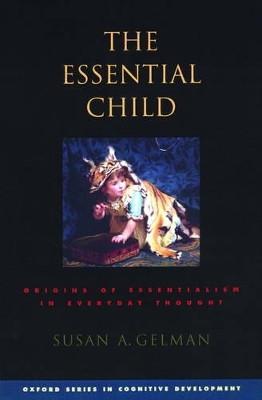Oxford Series in Cognitive Development
1 total work
Numerous fields stake claims about essentialism but this is the first book to address the issues surrounding essentialism from the perspective of developmental psychology. Gelman synthesizes 15 years of empirical research on essentialism into a coherent framework, examining children's thinking and ways in which language influences thought. She argues that young children's use of concepts such as "dog," "man," or "intelligence," reflects their deep commitment to the presence of these categories' properties that extends beyond the observable information about objects. The presence of this commitment in children also means that they do not come into the world as passive recipients of data, but rather have an organizational scheme that supports categories. This volume will be of interest to developmental, cognitive, and social psychologists, as well as to scholars in cognitive science and philosophy.
